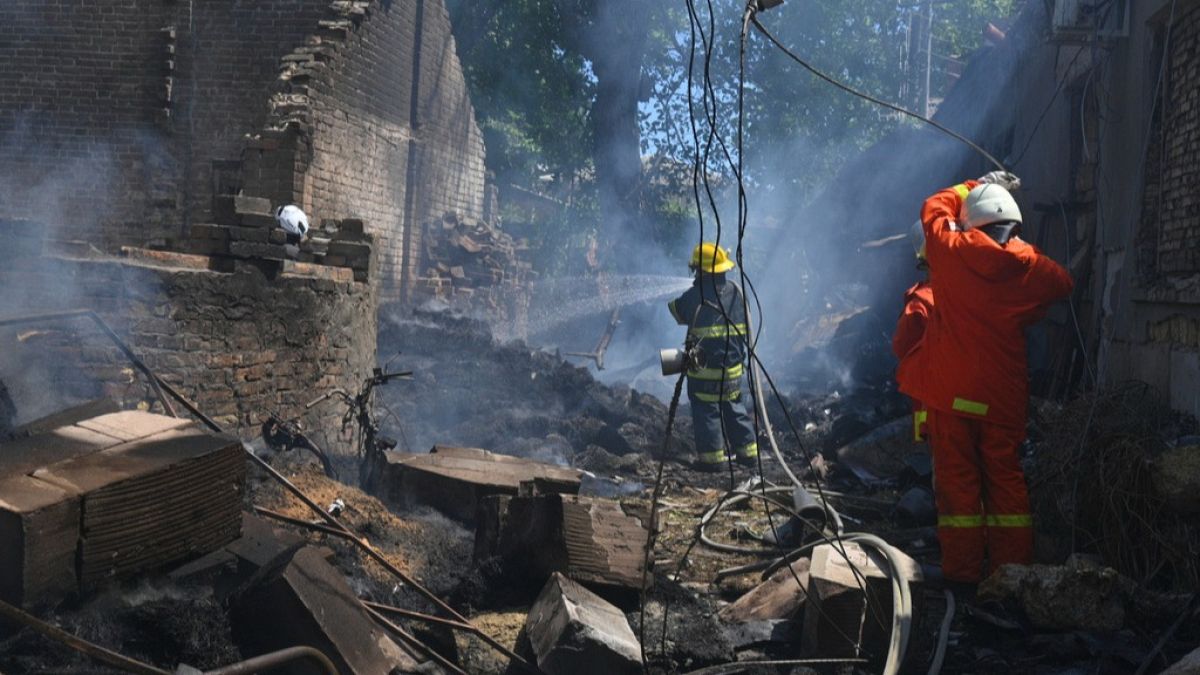

In recent days, the international community has been closely observing developments in Eastern Europe and the Middle East, as tensions escalate and humanitarian needs become more pressing. This evolving situation draws our attention towards promoting peace and understanding amidst complex geopolitical dynamics.
In Ukraine, the ongoing conflict with Russia has taken a significant turn. Russian forces have intensified their aerial campaigns, as evidenced by a record 741 drones and missiles unleashed upon Ukraine, marking the largest aerial assault recorded during this period of conflict. Ukrainian President Volodymyr Zelenskyy has spoken out against these attacks, emphasizing the deep contradiction in Russia’s claims of wanting to end the war while escalating military operations. In his statements, Zelenskyy highlighted the importance of Western allies imposing additional sanctions on Russia, advocating for a strategy that underscores strength as a pathway to peace.
In the face of these challenges, Ukraine is advised by various strategists to prepare for a future where negotiations for a ceasefire remain elusive. Former Ukrainian officials suggest that this dose of realism can allow Kyiv to craft a strategy focused on the ‘strategic neutralization’ of Russian advances. The past six months have seen hopes for diplomatic interventions, including potential negotiations mediated by figures like Donald Trump, but the situation on the ground suggests that alternative approaches may need to be considered.
Meanwhile, in the region of Georgia, European foreign ministers have expressed deep concerns regarding the region’s deteriorating situation. A recent progress report on Georgia’s accession process has underscored Europe’s interest and investment in ensuring stability and security within its Eastern borders.
Across the Middle East, the humanitarian situation remains dire, particularly in Gaza. Recent reports indicate that Israeli airstrikes have resulted in the deaths of at least 58,000 people, with women and children making up a significant proportion of the casualties. This devastating toll reflects the urgency of addressing the needs and rights of those living in conflict zones. Key incidents include an airstrike on a water station, claiming the lives of ten individuals, including six children. Furthermore, a strike on a home led to nine fatalities, highlighting the ongoing impact on civilian infrastructure. Israel has acknowledged certain incidents, attributing them to targeting errors while also pointing out the complexities of militant operations in densely populated civilian areas.
In the occupied West Bank, tensions have also escalated. Recently, the tragic death of Sayfollah “Saif” Musallet, a Palestinian-American, has sparked calls for accountability. Musallet was reportedly killed by Israeli settlers, prompting his family to seek intervention from the U.S. State Department. In a related incident, another Palestinian was shot dead near an aid distribution site. These events have fueled discussions around settler violence and the responsibilities of international actors.
Bishops from the Church of England have added their voices to calls for action, urging the UK government to apply more stringent sanctions and to reconsider trade agreements with Israel due to rising settler violence. Their appeals emphasize accountability and the need for sustained diplomatic efforts to mitigate tension and support peace.
Finally, in Syria, separate clashes in a Druze-majority town have led to multiple fatalities, reviving memories of previous hostilities earlier this year. These events are a reminder of the fragile balance of peace in various parts of the region, calling for vigilant attention and support from the global community.
Amidst these unfolding scenarios, it remains imperative to approach each situation with calm and a commitment to peaceful resolution. By focusing on dialogue, humanitarian aid, and international cooperation, we can aspire to nurture hope and healing in regions devastated by conflict and uncertainty.
Source: {link}
